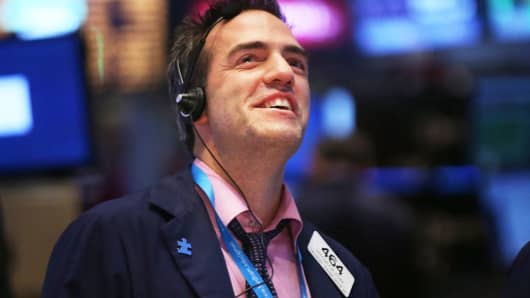I recently talked with a 62-year-old woman who put her $1.8 million inheritance into gold companies based on the advice of a newsletter adviser. That money is now worth less than $400,000.
As it turned out, the "adviser" was actually a con artist. In return for his recommendations, the gold companies gave him options to buy their stock for about 50 cents on the dollar. His newsletter created new demand for the shares, and that let him (and executives in the companies) sell shares for quick, risk-free profits.
As you can probably guess, I don't make market forecasts or predictions. And I don't make recommendations based on what I (or anybody else, for that matter) think is or isn't going to happen in the next month or the next year. All of my recommendations are based on the best historical data I can find from some of the smartest academics in the industry.
My recommendations to investors have not changed substantially for nearly 20 years. They are not based on predictions or current trends. On the contrary, they are based on long-term performance and rigorous academic research.
Therefore, I cannot tell you what is likely to happen this year.
Investors have to make many important decisions, among them: Should I pay attention to market forecasts and predictions? Should I act on them?
I believe the answer is simple: No!
Forecasts and predictions are valuable because they show us how easy it is to be wrong. As John Kenneth Galbraith said, "The only function of economic forecasting is to make astrology look respectable."
We just finished a year in which the U.S. stock market turned in its best performance since 1997. I think you would have to agree that fact is important to investors. Surely, the best minds in the business would have seen this coming a year ago, right?
Unfortunately, in many cases the answer was no.
In January 2013 the consensus was that the market in 2013 would be positive, though very few people were predicting a runaway success. Vanguard's best guess was a gain of 6% or 7%.
A year ago, Mario Gabelli said stocks in 2013 would be up by no more than 5%. Investors who took this forecast to heart may have missed all or part of the year's actual gains of 30% to 40% (depending on your choice of benchmark index).
Also a year ago, the time-honored historical record based on presidential terms (2013 was the first year of Barack Obama's second one) indicated a market gain of less than 6% would be normal. That didn't happen, of course. (Incidentally, historically the second year of a presidential term has been worst in the market, the third year the best.)
Last week,
David Weidner identified the five worst predictions from a year ago:
1. Jim Rogers, co-founder of the Quantum Fund, predicted an economy so crippled by the Federal Reserve that it would turn into a depression. His prescription: Sell stocks and buy commodities. That turned out to be bad advice. According to Morningstar, the average long-only commodity exchange-traded fund lost over 15%. Managed futures funds made about 1% for the year.
2. Adam Parker, equity strategist for
Morgan Stanley, said the best 2013 market scenario he could imagine would be gains in the low single-digit range. His advice a year ago: Hold on to cash and seek dividends. Last year, U.S. stocks paid dividends in the neighborhood of 2%, while cash reserves paid next to nothing. Dividend stock funds did very well, but not because of the dividends; almost all their performance came from capital appreciation.
3. Last February, hedge fund manager Doug Kass, a columnist and president of a firm that specializes in alternative investments (other than stocks, bonds and cash), said he was "as bearish on stocks as I have been in some time."
And what was the fate of alternate investments last year? Here are a few examples: Gold funds lost more than 40%. Gold itself lost 28%. Currency funds gained an average of 0.5%. Bear funds had average losses of 34%.
4. Another hedge-fund manager, Ray Dalio of Bridgewater Associates, said the economy was running out of steam and stocks had little room to grow.
5. Swiss economist Marc Faber steered his followers (and presumably his own assets) clear of stock-market risk last year, saying his priority had shifted to preserving the gains he had made in 2010 through 2012 — when the Standard & Poor's 500 Index was up 14.8 %. It's always nice to take profits (except when you have to pay the tax). But Faber's followers left much bigger profits on the table last year.
Richard Buck contributed to this article.





